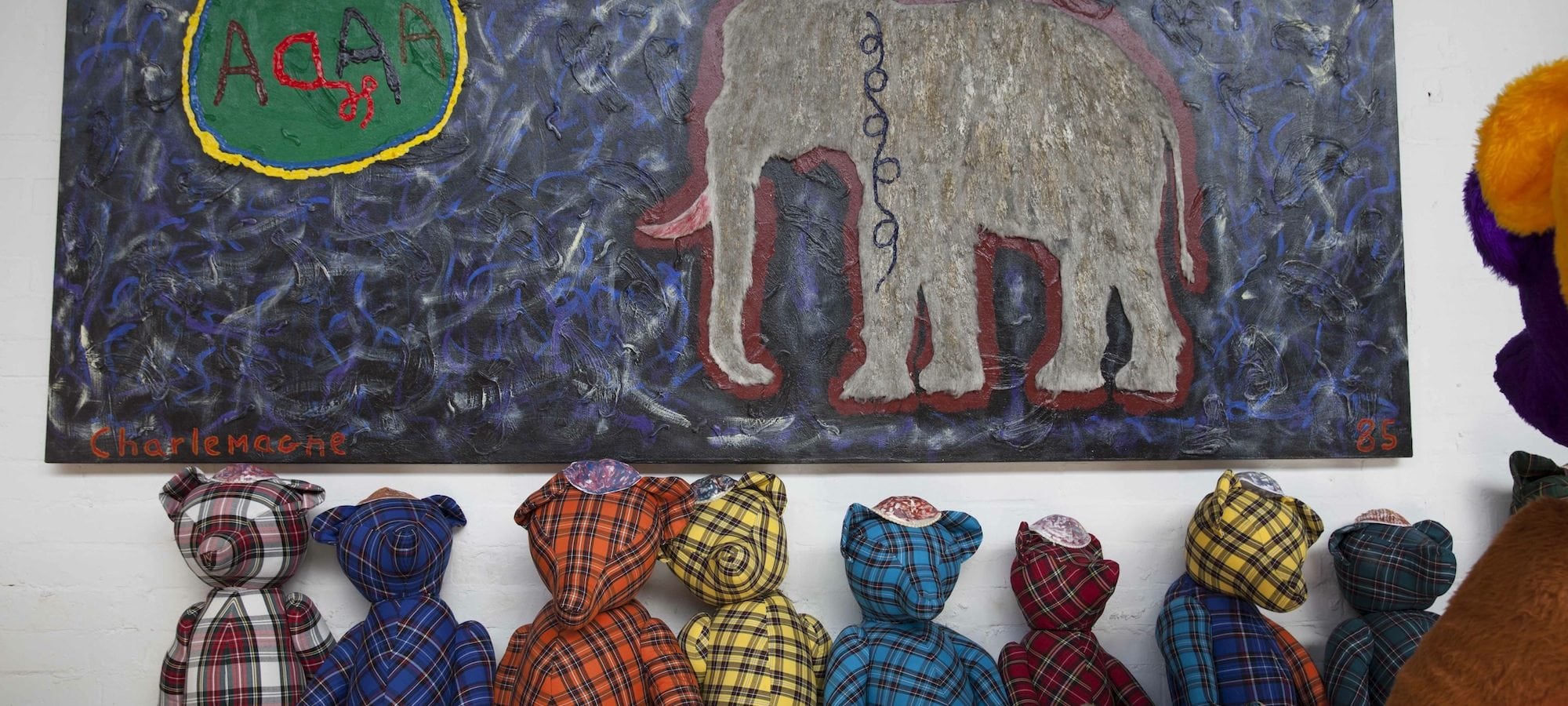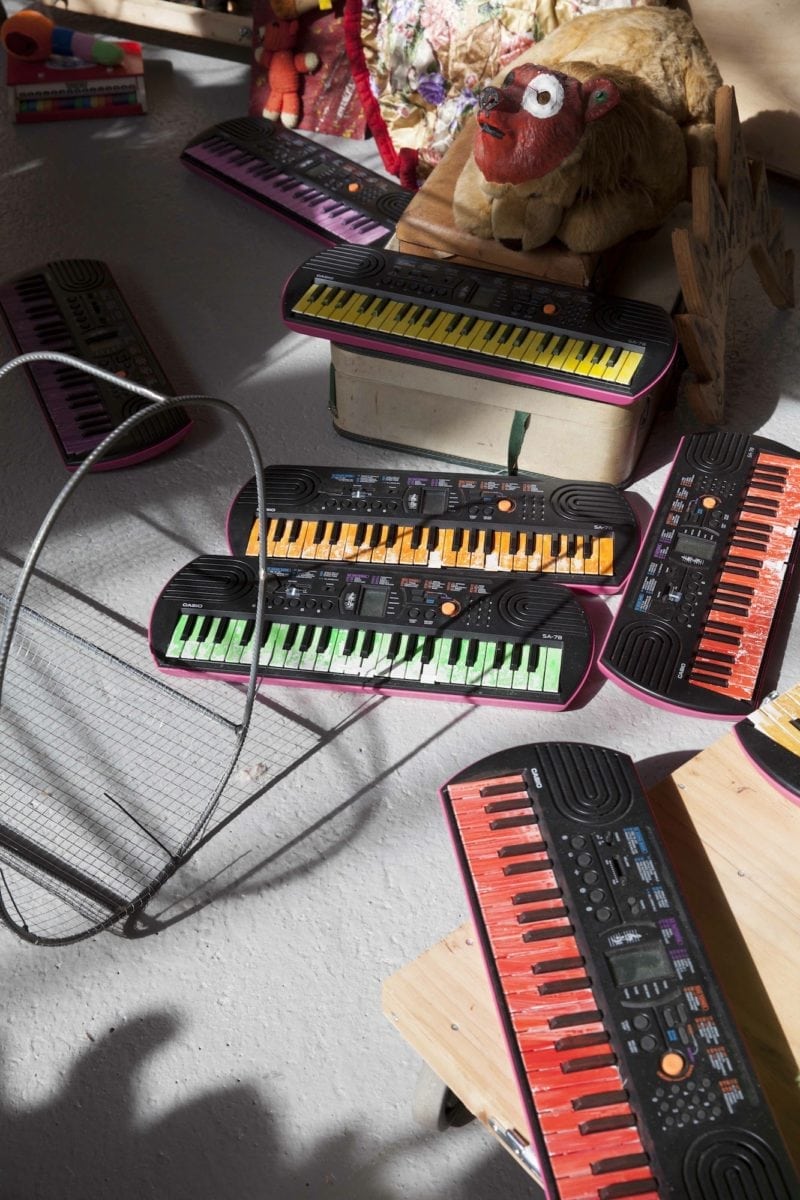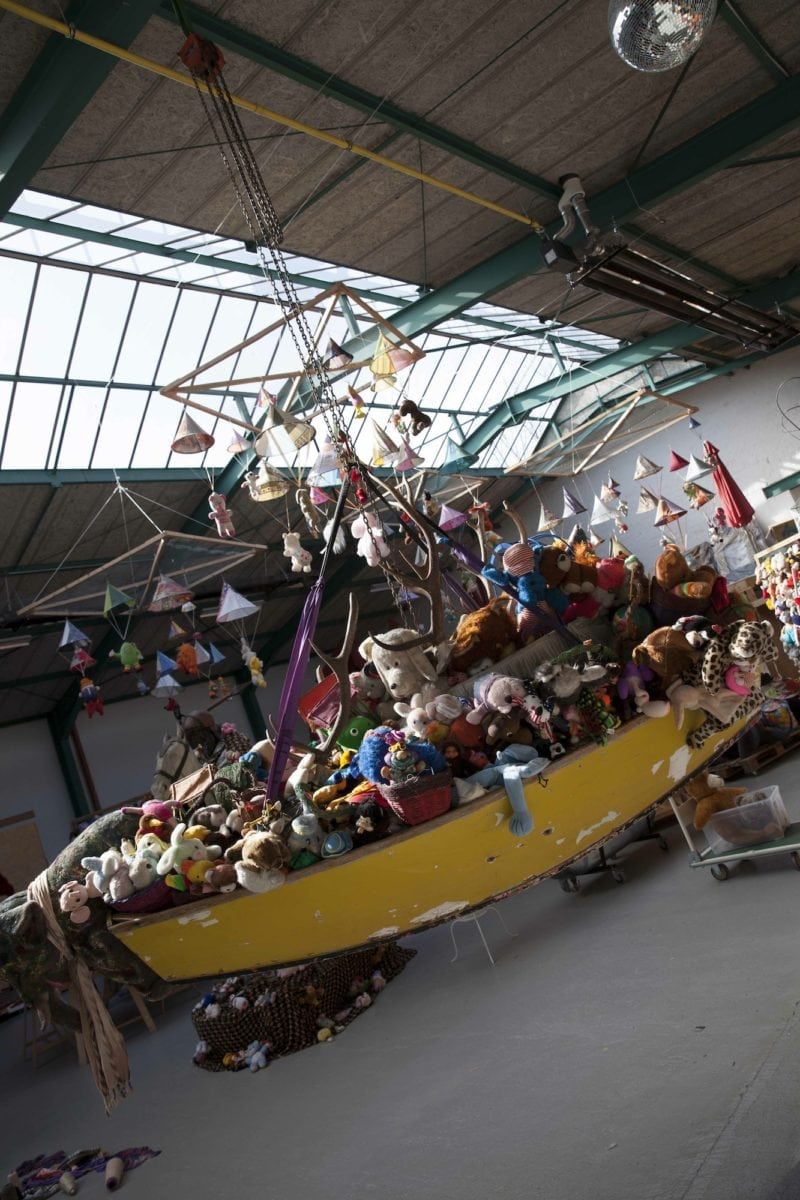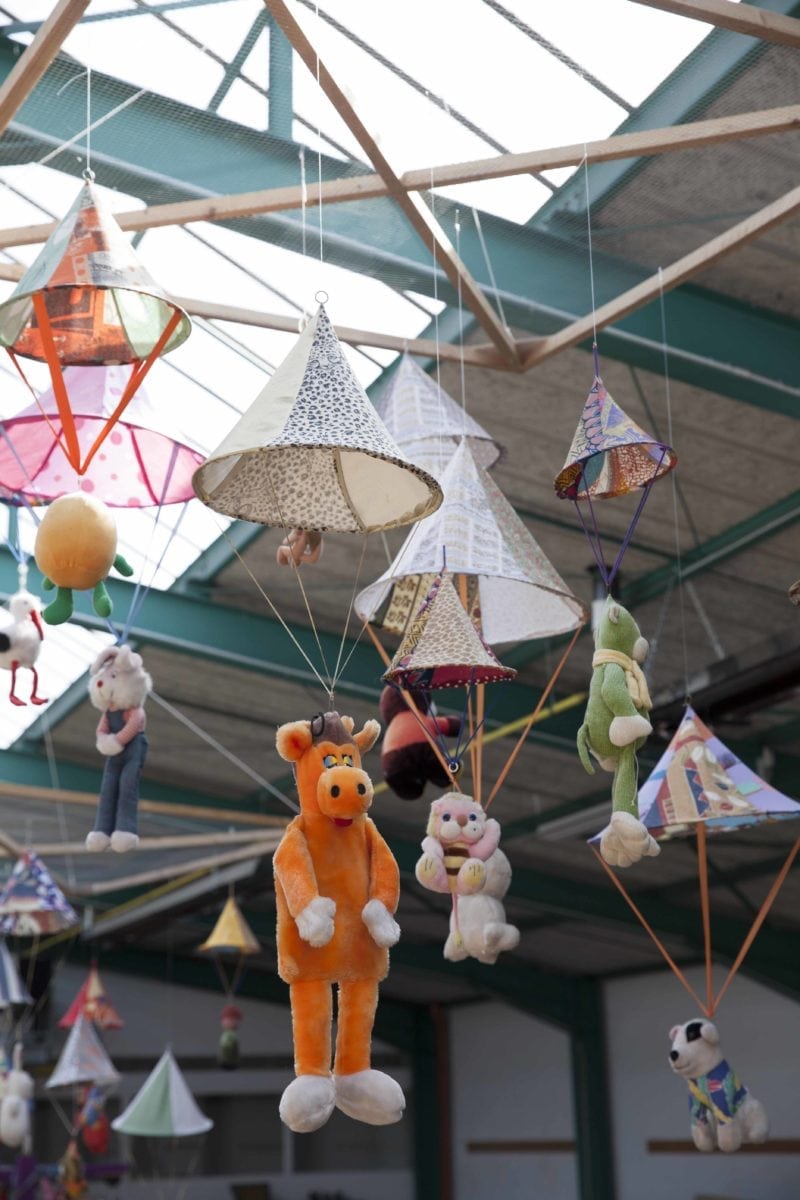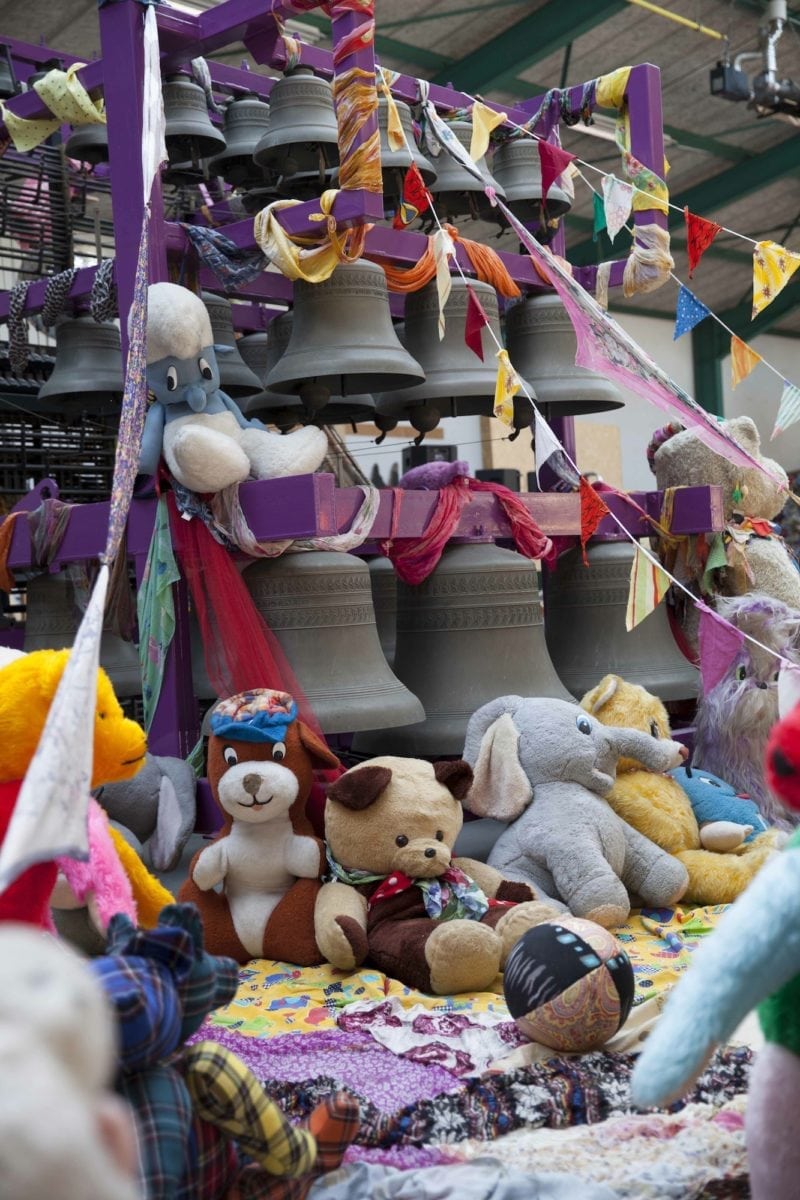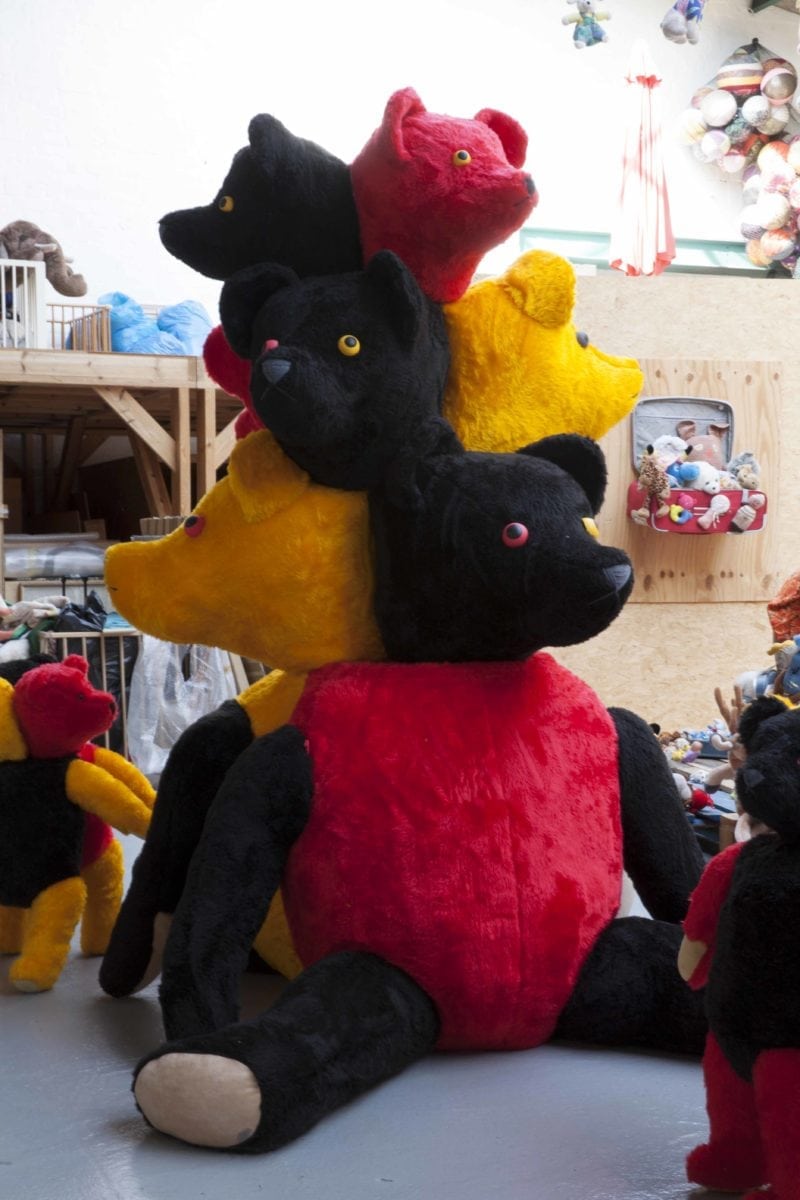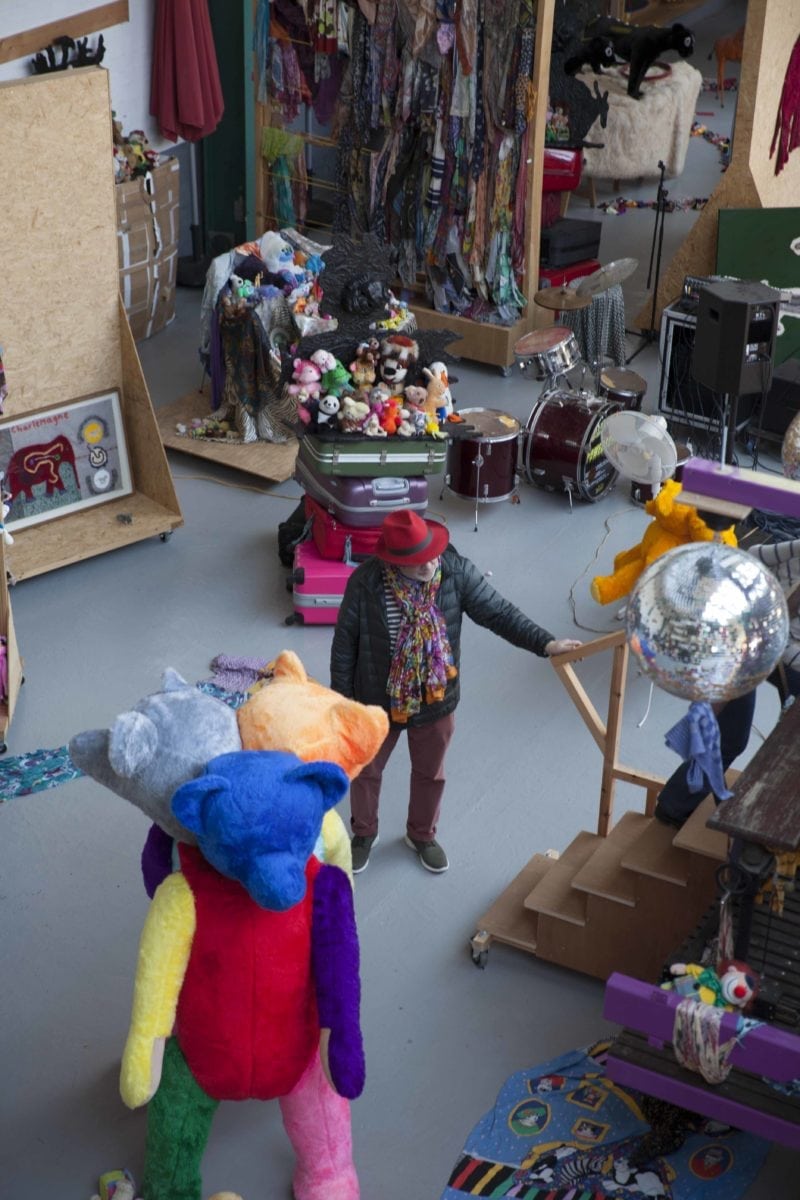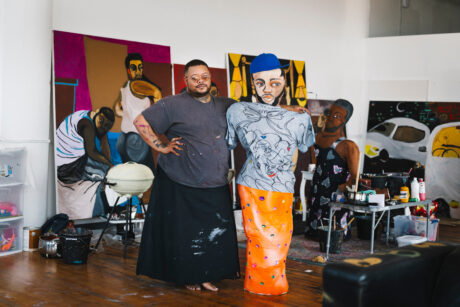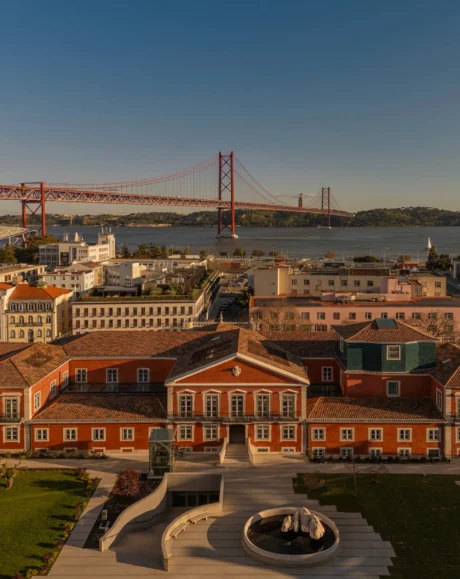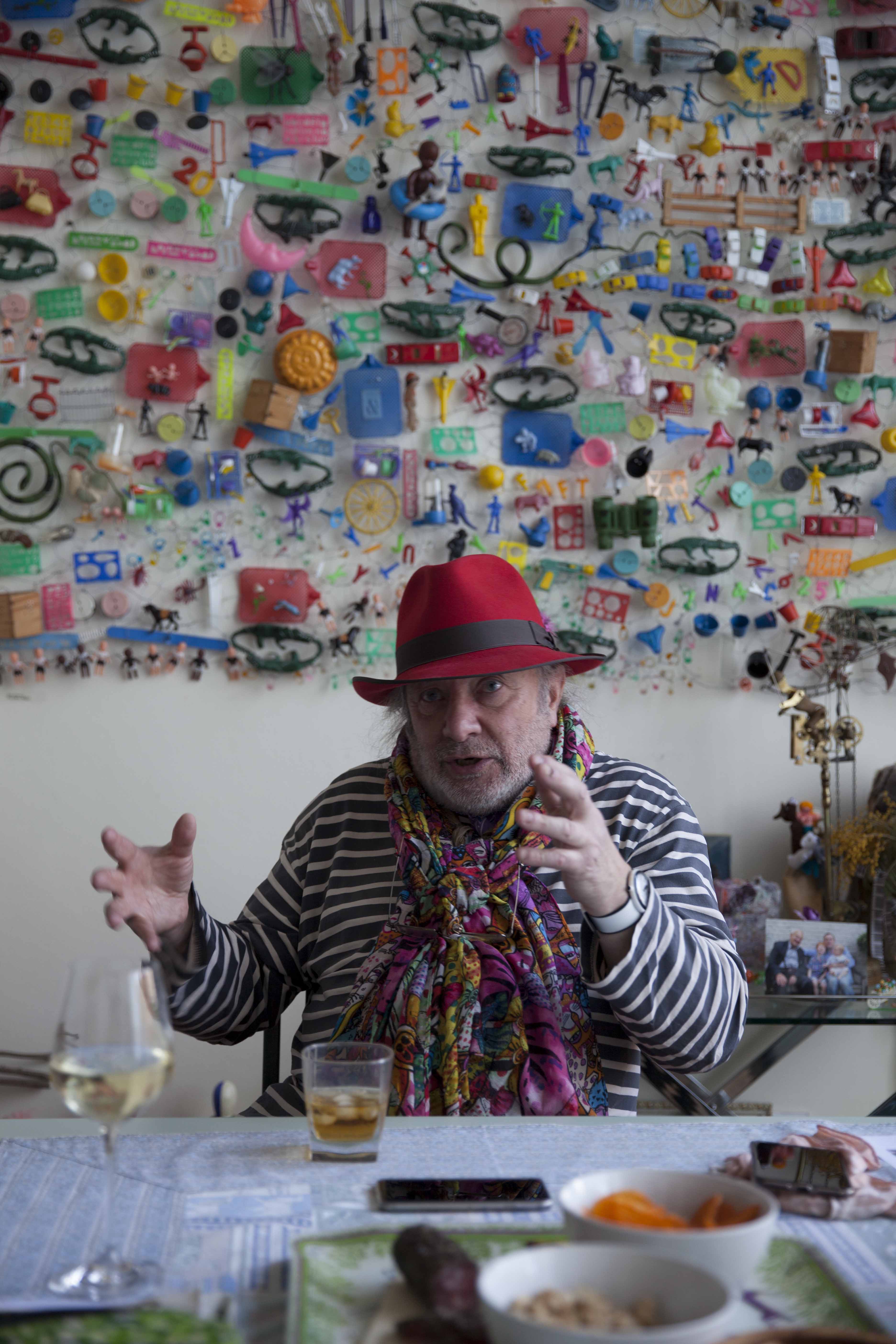
American composer Charlemagne Palestine has been making art since the age of thirteen, when he was playing the bells at Saint Thomas Church in New York as a side job. Now sixty years into his all-encompassing career, his roving, ever-curious work is being celebrated with a retrospective show at Bozar in Brussels, his adoptive home of more than forty years. Titled AA SSCHMMETTRROOSSPPECCTIVVE, a Yiddish play on words, it sets out to makes a mockery of the finite, finished nature of the classic, austere retrospective project, suggesting instead an alternative range of possibilities and future avenues. I meet with this twenty-first-century shaman at his studio to talk about his story, his inspirations and his vision.
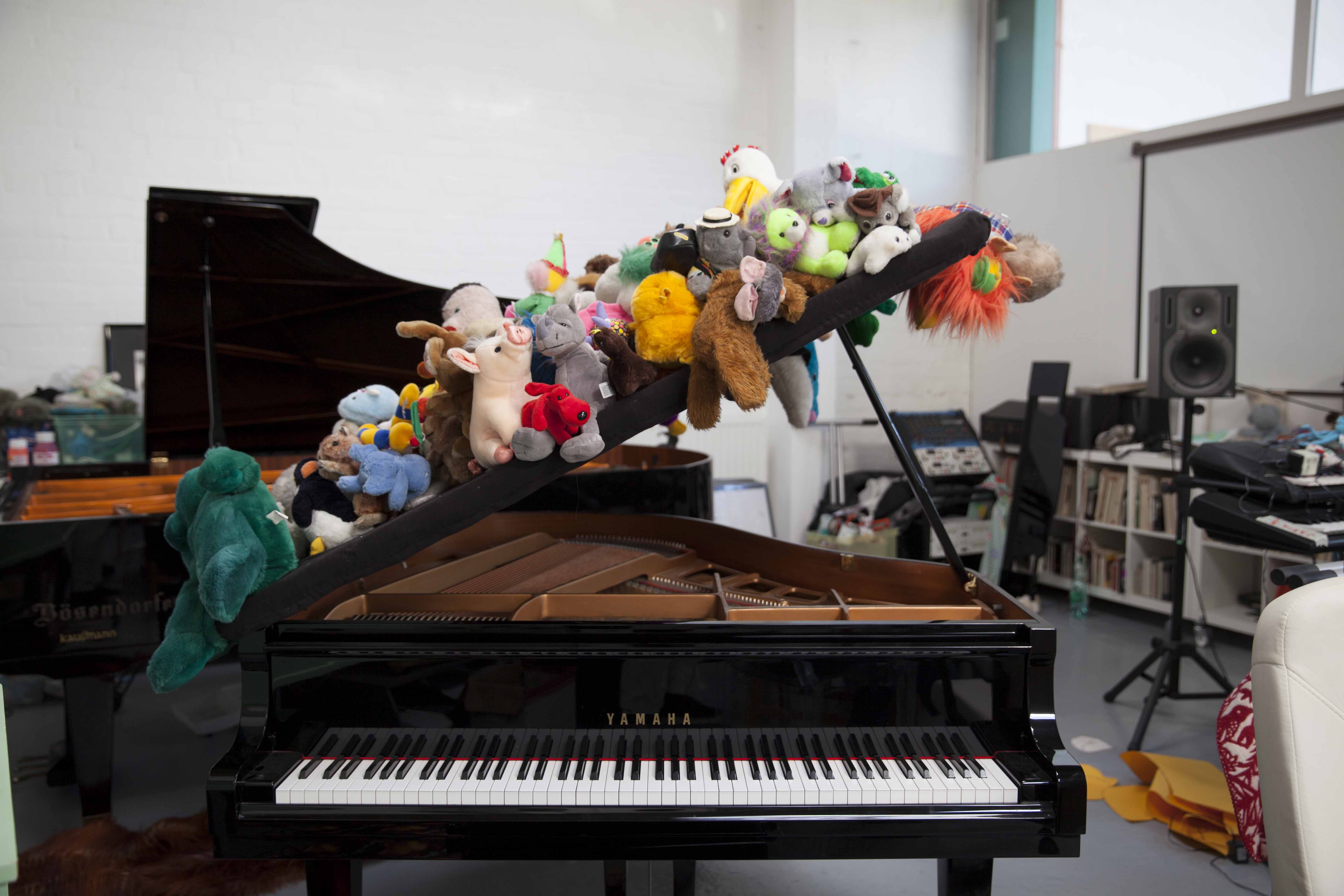
When researching your past work I found a lot of material about your music and your sound pieces. Was there ever a moment when you preferred to call yourself a musician instead of an artist?
Oh no, never. I never liked being called a musician and, in general, I don’t like anything that puts me in a box. I like to be called an artist in the broadest sense—which means not a painter, not a sculptor, not a performer… I’m an everything, and sometimes I do nothing, sometimes I do too much and so on. Now, later on in my life, I like to call myself a Gesamtkünstler (German for “total artist”).
It seems appropriate. Even the way you write emails is part of your Gesamtkünstwerk!
Oh, you mean all the added letters? You know, since they don’t cost any extra, I just go for it. Whether I use one “F” or six, I don’t have to pay for them, so I use more!
I read a little about your childhood and how you started playing in a synagogue. What do you remember?
That was my first job. And it was a very nice one in fact because when I was a child New York City was home to some of the greatest singers of Jewish sacred music. They were all European and were saved by rich American Jewish families who brought them to the States in the late thirties. So there was a lot of these traditional singers around town, and I was lucky enough to sing with some of the best.
Was there a particular medium or instrument that you felt was your main tool of expression?
Well, I started to sing, that was my first “medium”, so to say. The title of one of my early works was Body Music (1973-74) because, in fact, my body was my very first instrument. My voice belongs to my body, and everything else that I do is around my body. I’m not an intellectual, and none of what I create comes from concepts or ideas. It’s all done from my guts.
So, to answer your first question, it was my body that worked as a catalyst for all of my work, it was my body that brought me to each medium. This made life pretty hard for me in the early days: I wasn’t permitted to be considered an artist because I did too many things. But my body felt curious, so I just followed my instincts—like an animal would do. That’s also why, among other reasons, animals are very present in my work.
“I like to be called an artist in the broadest sense—which means not a painter, not a sculptor, not a performer… I’m an everything”
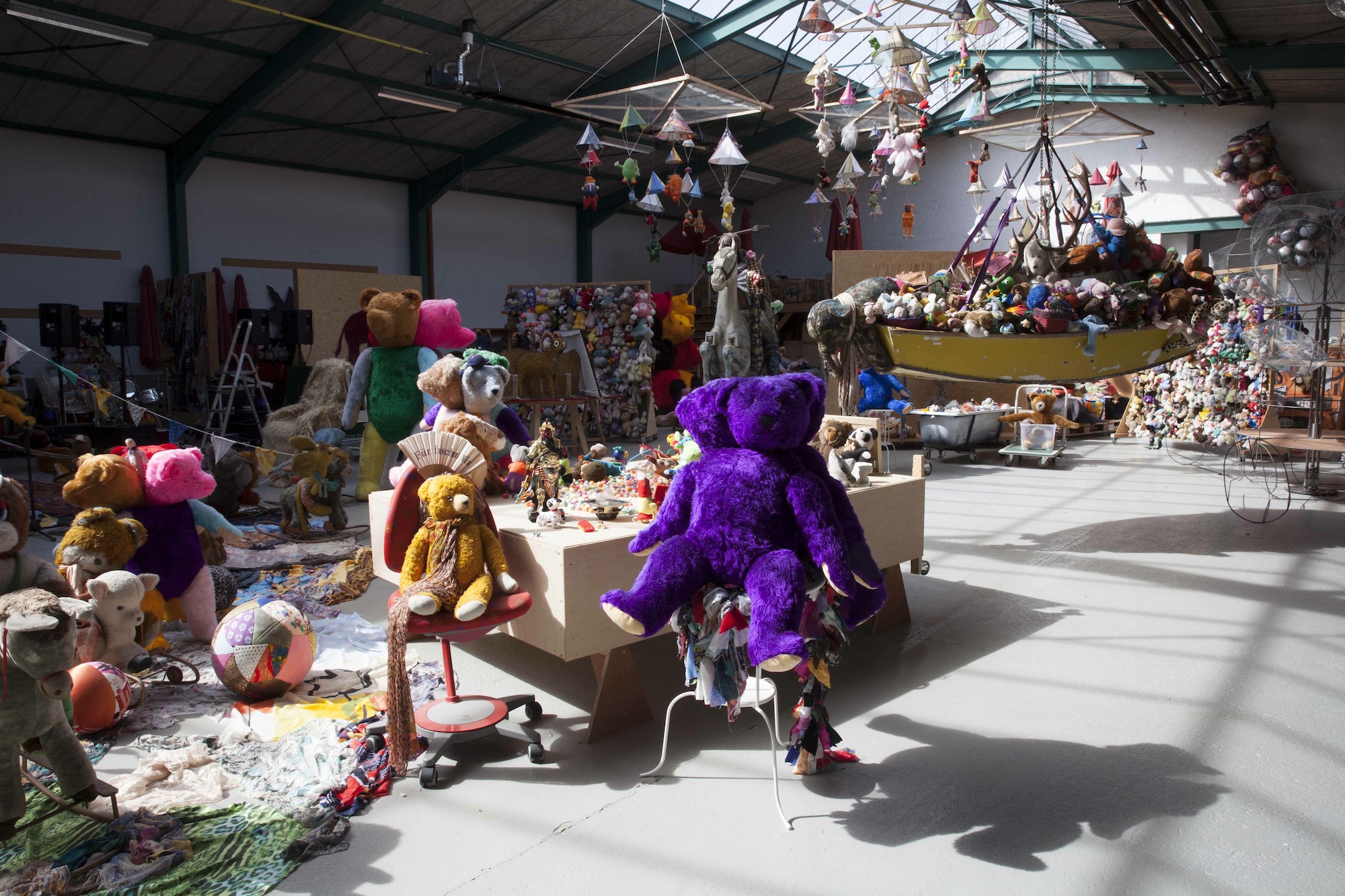
Yes, indeed! Your house and your studio are flooded with animals, just like your installations. In fact, I read that you describe them as Divinities, as some sort of sacred characters. Could you tell me more about them?
Well, the first thing that should be considered is that the animals exist in a very different time frame than we do, one that is much closer to eternity. In a hundred years, these animals, these divinities, will pretty much look the same as they do now—while I can assure you that neither you nor I will look the same in a hundred years time.
Divinities look very modest but, in a way, they are closer to the realm of immortality than we could ever be. This said, whether I make them divinities, I don’t know… but I decided that these kind of beings are sacred and are not ordinary at all. It’s my decision and, at the same time, it’s not—they are what they are. You can say that they’re nothing and I can say that they’re everything, and that’s the value of art.
When did you start recognizing your Body Work as a shamanic practice?
I don’t think I ever “recognized” it, it was just the way I was. Again, I didn’t think about it; it was my instinct. I didn’t choose. Neither did I ever call it shamanic, but when I started studying these practices I felt a great affinity with them. In my readings I found out about these traditions all over the planet, from alchemists to magicians and shamans… these disappearing cultures had something that really resonated with me; it resembled what I was feeling and seeing and experiencing.
I’m interested by your reference to disappearing cultures. It makes me think of an interview in which you said that you feel your culture is a disappearing one.
Well, yes, I’m the first one and I’m the last one! The day of my death is the last day of my culture. That’s why I feel a connection with these cultures, these realities that are not adapting to our new global cosmos—Eskimos, Laplanders, Pygmies… These people are close to extinction today because we don’t live in a world that is made for them.
But, of course, I was also born in New York, right in the middle of this new world. So, in a way, I am a survivor and my culture will hopefully survive too through the preservation of my work.
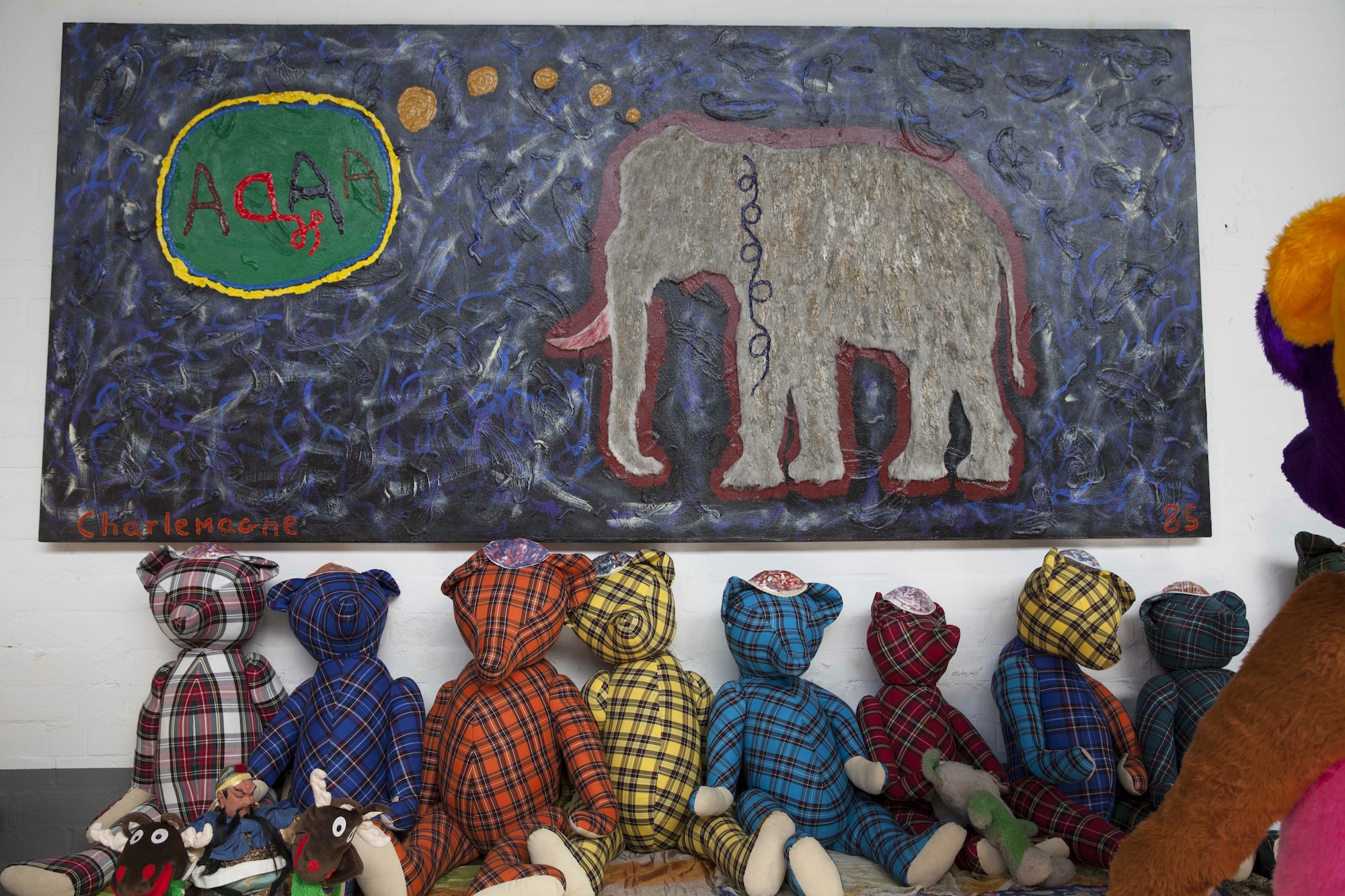
“From alchemists to magicians and shamans… these disappearing cultures had something that really resonated with me”
There is almost a backward Diaspora in your life. Your family emigrated to America, and then you emigrated back to Europe.
Yes, that to me is very important. I am the only one in my whole family who ever came back. No one else did because they all became Americans, they were absorbed by the philosophy of it. I do think America is great in many ways, but I always felt closer to the culture of my ancestors, who were Eastern Europeans.
Although it’s hard for me to say whether I feel at home somewhere, because I was brought up in a refugee family and I don’t feel like I belong to any nationality in particular. But after forty-five years here in Belgium, I have now officially become Belgian. I plan to be buried here.
Personally, what I most appreciate about your work is that it deals with the messiness of the contemporary world by using the world’s own matter, instead of trying to abstract it. This direct, maximalist approach makes sense to me.
I am glad that, in these last years, more and more people seem to be interested in expressing what it is that I am… But as I said, I myself don’t know—and I don’t want to know—because I’m not finished yet. This is why my show at Bozar here in Brussels is called a Schmetrospective and not a Retrospective. The term “retrospective” totally terrifies me: it signals the beginning of the end! The filmmaker Robert Bresson once said that by the time you have a retrospective, you’re finished. Well, luckily he never had an opinion about a schmetrospective, so… I’m okay!
